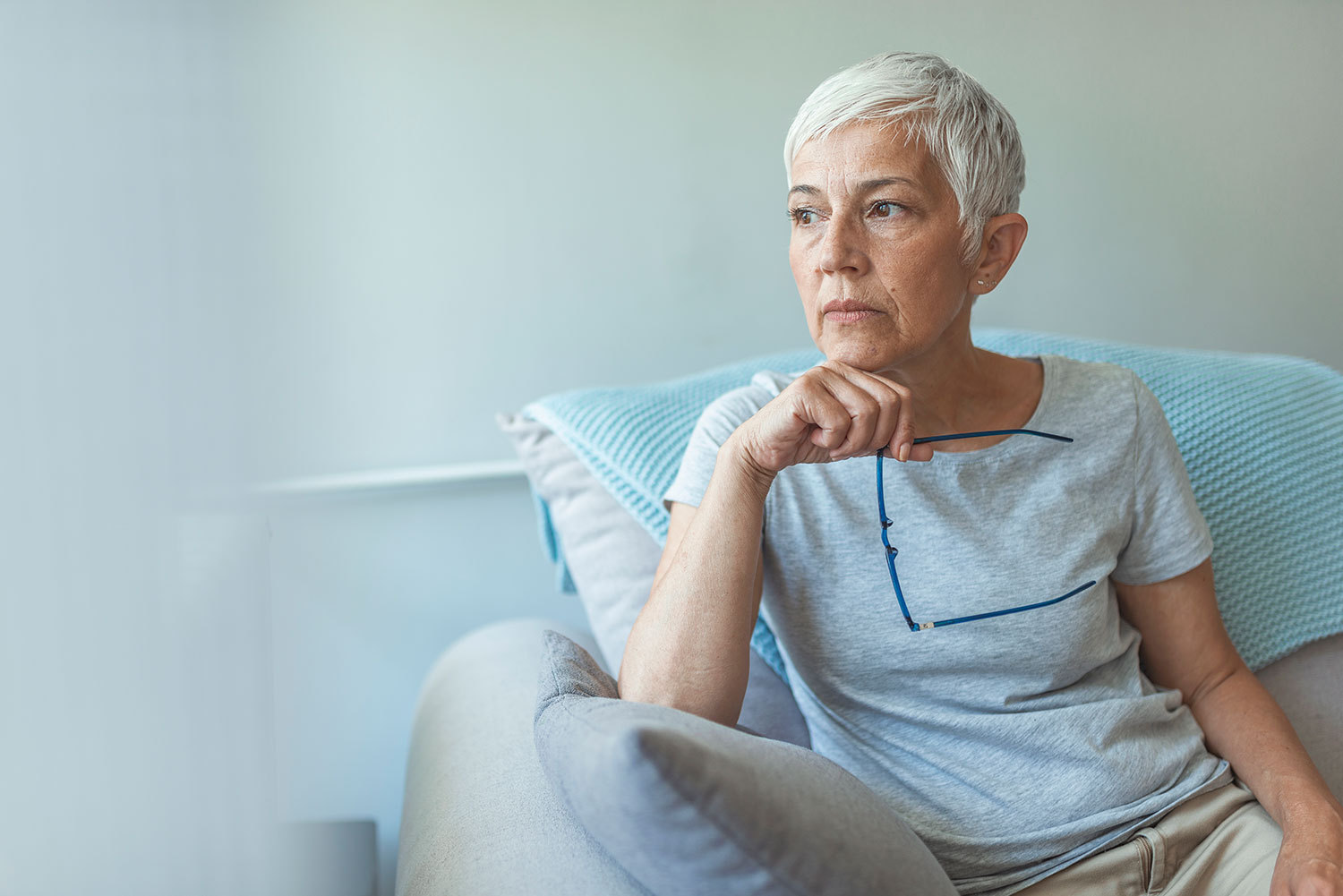There is hope—people are available to provide the help you need. Below are tips on where to find that help, and how to do it safely.
What to Expect When Calling a Domestic Violence Service Provider
A first step in seeking help can be to call your local domestic violence agency. You can talk to a caring person who will listen carefully without judging you or your situation. Advocates can help you think about your options and determine what steps and services will work best for you.

Advocates Want to Help You
Advocates may ask questions to learn more about your situation, but you are in control. They will not presume to know what is best for you. They will help you brainstorm options. Together you can consider all possible scenarios and outcomes so that you can make the best decision about action steps for you and your children.
Each local program works with people of all races, ethnicities, ages, gender identities, sexual orientations, abilities, cultural backgrounds, religions, economic, and social backgrounds. Services are free and confidential. They will not report you to immigration, ICE, or law enforcement if you are undocumented.
Services Provided by Local Programs
Help Available in Maryland
All 23 Maryland counties and Baltimore City have a local domestic violence service provider. Not all programs offer all services, but they can all refer you for any service they don’t offer.
Most local programs have a 24/7 hotline for crisis support, advocacy, information, and referrals. You do not have to be in crisis to call the hotline. You may also call the hotline if you are a friend or family member of a survivor who needs support or information.
Many programs provide in-house, individual counseling. This counseling can provide you with a supportive environment for exploring your thoughts and feelings. Counselors can also provide other resources and support for you and your family.
A safety plan is a personalized and practical plan for reducing the risk of being hurt. It helps you to identify things you can do to better protect you and your children at home, school, work, and in the community. Your safety plan can change at any time. It is an ever-changing process based upon your individual situation.
A safe place to live when leaving an abuser is often a major need. Secure and confidential housing is available if you must leave your home because your safety is at risk. You can also receive the other services a program provides while living in a shelter.
Legal Advocates can help describe what can be expected if you need to go to court. They can provide you with information about court cases—including civil protective and peace orders and criminal cases against the offender—to help you make informed decisions. Some programs in Maryland also have in-house attorneys to assist survivors with crime victims’ rights, as well as divorce, custody, and other civil cases.
Many programs facilitate support groups to help survivors cope, share experiences, and explore options for safety. Support groups can be a great way to help regain control in your life. However, talking to a therapist about when to enter into support groups is strongly recommended.
What to Expect When Calling the Police
One goal of law enforcement is to ensure a victim’s safety. Most police departments understand the importance of responding quickly to calls about domestic violence. The first thing they will do when they arrive is to make sure that no further injuries will occur.
The police must then gather facts about what happened. They may talk to anyone who was part of the incident, or who witnessed or heard the incident. They will look to see if there is any “physical evidence” of an altercation, such as bruises or blood on a person, torn clothing, or broken furniture. The officers then evaluate what they have heard and seen. They will then decide whether a crime has been committed and whether anyone should be arrested. They can also call for medical help if it is needed.
Sometimes the police will arrest a person when they come to the scene. Sometimes they will arrest the person later. Sometimes they will never make an arrest. In almost all family violence cases, the police must arrest anyone they believe has committed a crime, based on the facts.
In many Maryland communities law enforcement officers are trained to connect survivors with the local domestic violence service provider to assist. Maryland’s domestic violence programs have close working relationships with their local law enforcement agencies. They often work together to ensure your safety and try to see that your abuser is held accountable for their actions.
Staying Safe
How to Protect Yourself
Deciding what to do when you are in an abusive situation is hard. It is common to not know whether to stay or leave. It is your choice. Below are some options for staying safe. There is also information on safety planning and technology safety. You can discuss a detailed, personalized safety plan with an advocate at your local domestic violence service provider.
If you stay, you can find support and safety. Think of answers for the following questions. Remember, staying as safe as possible is the top priority.
- If you’re called names, how can you take care for yourself emotionally?
What friends can you trust? - Is there a safe place to stay in case you need to leave for a few days if it gets dangerous or if you need a break?
- What is the safest place in the house to avoid serious injury?
- What is the best physical position to take to avoid serious injury?
Leaving takes planning. Think about the following questions. With time and the support of friends or a domestic violence advocate, you can make a safe plan for leaving.
- How can you get money?
- Will you be safe at home until you can leave?
- When can you leave?
- How will your partner react?
- What might prevent you from leaving safely?
- Will you take legal action?
- Do you need an attorney?
Leaving is a big life change. You can still be in danger from your abuser. Think about the following questions. A new life is possible, even if it is hard to imagine.
- Will you have to move or change jobs so you can’t be found?
- Stop talking to certain friends?
- Take a break from social media?
- Call the police or get a protective order?

General Safety Planning
You can build your support system and find ways to be safer. This applies whether staying with an abusive partner or leaving. You can’t control your partner’s abusive behavior. However, you can take steps to protect yourself (and your children if you have any) from harm. You know your situation best. You know when remaining in the home and/or in the relationship is no longer an option. Safety plans are important whether you are staying in or leaving a relationship.
Make a Safety Plan
A safety plan is a personalized and practical plan that helps you identify things you can do to better protect yourself (and your children) at home, school, work and in the community. It will also help to reduce your risk of being hurt. The changes that occur may be big, like going to a confidential shelter or changing schools. The changes may be small, like changing your email passwords or the route you take to work. Planning ahead can enhance your safety during or after a violent incident. Your safety plan can help you to safely escape violence, protect your children, and get assistance or support if needed.
An advocate at your local domestic violence program can help you create a personal safety plan. There is a safety planning form available for download by clicking the button below if you are unable to contact a local advocate.

Technology Safety Planning
Technology and social media have become a part of everyday life. However, they provide another way for someone to abuse and control you. You have options if you are experiencing abuse via technology. You can track what is happening with a Stalking Incident Log.
- Record all communication with and from the stalker.
- Keep all harassing voicemails, texts, e-mails, and online messages.
- Take screenshots of e-mails and online messages using the Print Screen button on your computer. Save them by pasting into a Word, Notes, or Google Docs document.
- Save all of your documentation, especially police reports and legal documents, in a safe place.
- Make copies of all of these materials. Give the copies to someone you trust.
- Get a new phone and keep the number confidential.
- Keep your old phone to document the stalker’s calls or texts.
- Research your privacy settings on your phone and apps that track your location.
- Turn off location services for phone apps under Settings —> Privacy —> Location Services.
- Report threatening calls to your phone company or the police.
- Many social media platforms have tracking functions.
- Check to see if they are on
- Someone else may have turned on the tracking without you knowing
- It is possible that your personal computer has been hacked or hijacked.
- Find a safe computer at a friend’s, at work, or at a library
- Use a tablet or other device you know is safe
- Purchase anti-virus and anti-spyware for extra protection.
- There are lots of low-cost ones on the market
- Research which is best for you
- Use strong, complex passwords.
- Use a different password for each account
- Avoid personal information such as your real name, birthday, or location
- Purchase programs that offer extra password protection
- Do a web search for your personal information.
- You may find information about yourself online that you don’t want public
- You can request that the sites remove the information
- There are attorneys who can help if the site won’t listen to you
- Be aware of what you post and share online.
- Even if you delete something, it can stay online forever
- Do not use “check-ins” on apps like Facebook
- Apply for a free, confidential mail-forwarding service.
- The Maryland Safe at Home Address Confidentiality Program helps you keep your address confidential.
- Contact your local domestic violence program to learn more and apply.
- Install a security system, home camera, or motion-detection lights.
- Change your locks. This includes
- Home
- Car
- Keep your doors and windows locked at all times.
